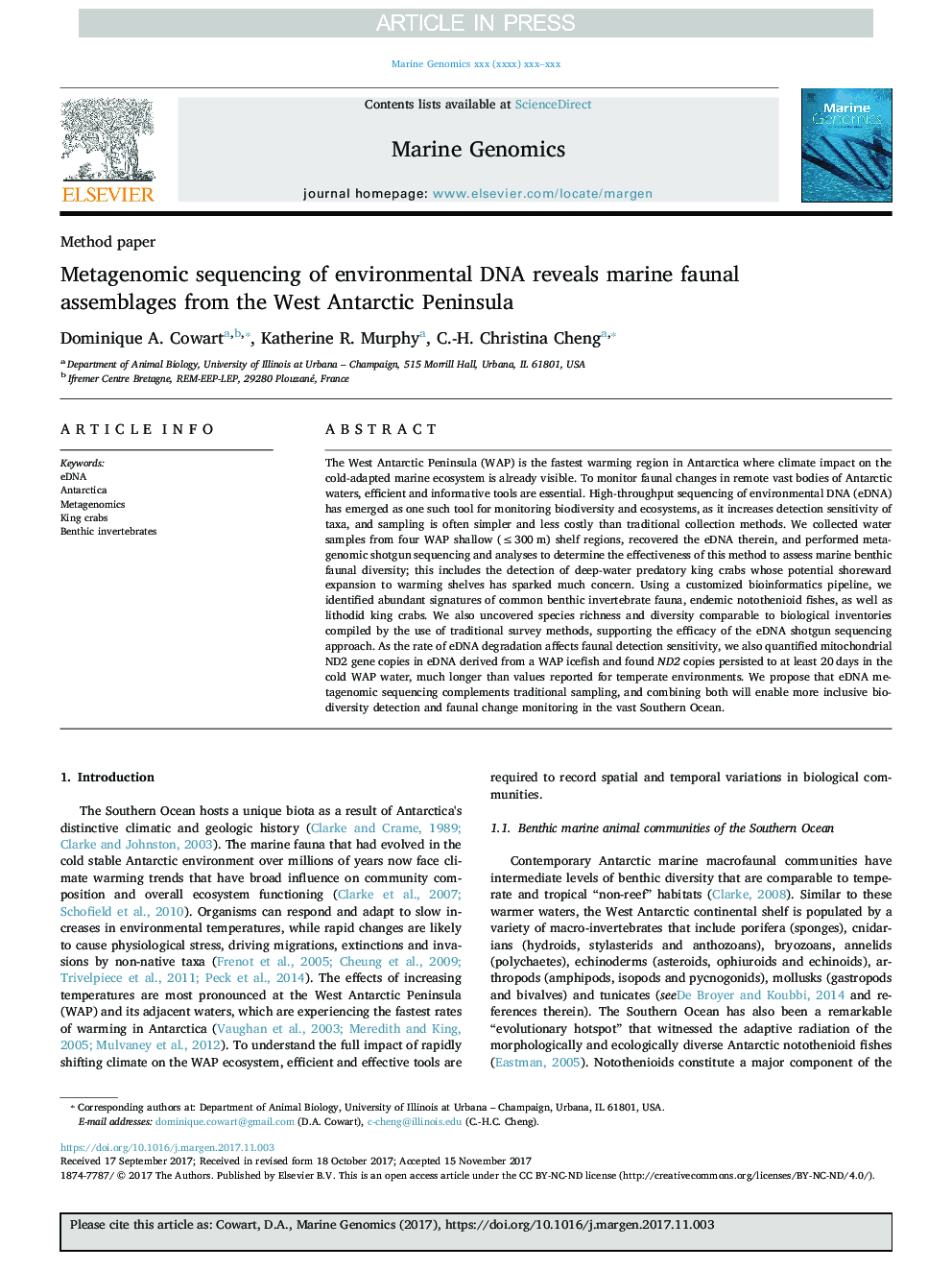| Article ID | Journal | Published Year | Pages | File Type |
|---|---|---|---|---|
| 8388059 | Marine Genomics | 2018 | 13 Pages |
Abstract
The West Antarctic Peninsula (WAP) is the fastest warming region in Antarctica where climate impact on the cold-adapted marine ecosystem is already visible. To monitor faunal changes in remote vast bodies of Antarctic waters, efficient and informative tools are essential. High-throughput sequencing of environmental DNA (eDNA) has emerged as one such tool for monitoring biodiversity and ecosystems, as it increases detection sensitivity of taxa, and sampling is often simpler and less costly than traditional collection methods. We collected water samples from four WAP shallow (â¤Â 300 m) shelf regions, recovered the eDNA therein, and performed metagenomic shotgun sequencing and analyses to determine the effectiveness of this method to assess marine benthic faunal diversity; this includes the detection of deep-water predatory king crabs whose potential shoreward expansion to warming shelves has sparked much concern. Using a customized bioinformatics pipeline, we identified abundant signatures of common benthic invertebrate fauna, endemic notothenioid fishes, as well as lithodid king crabs. We also uncovered species richness and diversity comparable to biological inventories compiled by the use of traditional survey methods, supporting the efficacy of the eDNA shotgun sequencing approach. As the rate of eDNA degradation affects faunal detection sensitivity, we also quantified mitochondrial ND2 gene copies in eDNA derived from a WAP icefish and found ND2 copies persisted to at least 20 days in the cold WAP water, much longer than values reported for temperate environments. We propose that eDNA metagenomic sequencing complements traditional sampling, and combining both will enable more inclusive biodiversity detection and faunal change monitoring in the vast Southern Ocean.
Related Topics
Physical Sciences and Engineering
Earth and Planetary Sciences
Earth and Planetary Sciences (General)
Authors
Dominique A. Cowart, Katherine R. Murphy, C.-H. Christina Cheng,
